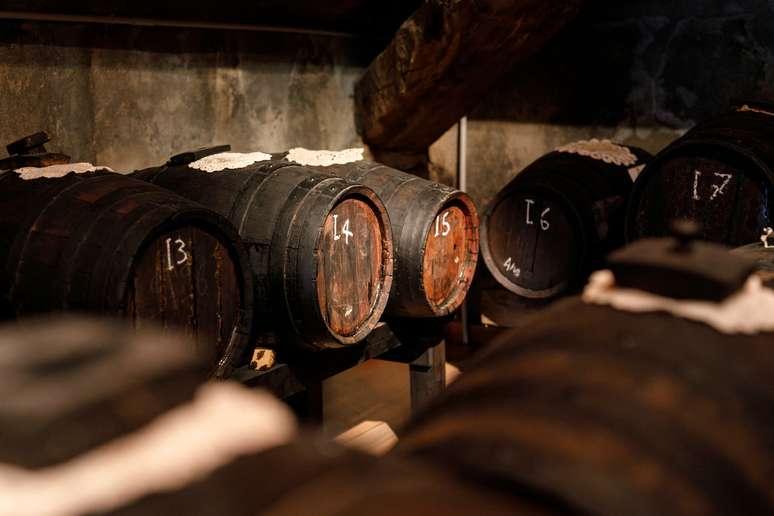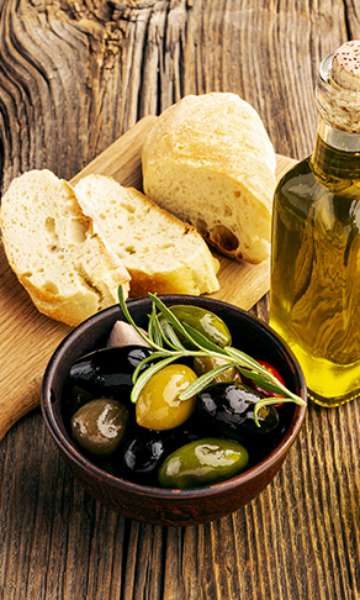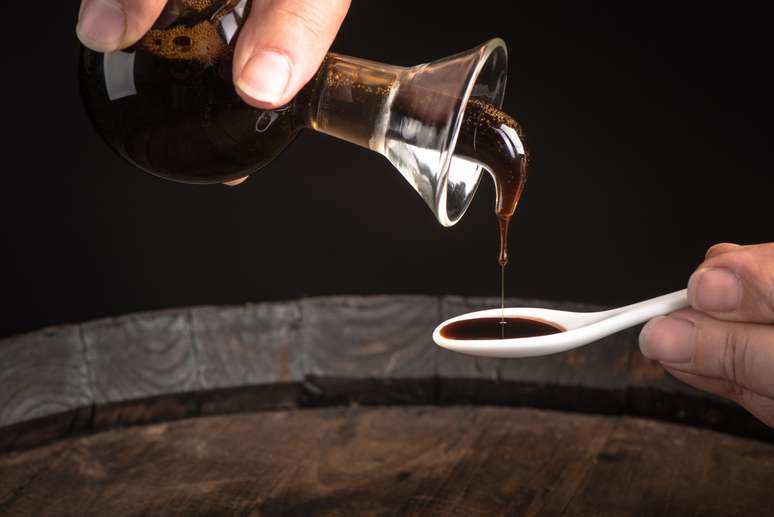True balsamic vinegar requires a meticulous process and can take up to 25 years to complete.
From small diners to award-winning restaurants, balsamic vinegar has become a notable presence in global cuisine. However, there is a discrepancy between what many know as balsamic vinegar and the true gastronomic gem of Modena, Italy. In a recent BBC articlelet’s find out why your balsamic vinegar may not be genuine, delving into the complexities of the artisanal production that results in traditional balsamic vinegar.
Traditional balsamic vinegar, or traditional balsamic vinegar, requires a meticulous process that lasts 12 years, or up to 25 years for the extra-old version. Limited by artisanal production, this variety is known for its exceptional quality and, consequently, its high price.
However, as global demand for this gastronomic elixir increased since the 1980s, a wave of imitations and cheaper products entered the market, which also led to police operations to combat the production of balsamic vinegar. counterfeit.
Where does traditional balsamic vinegar come from and how is it produced?
Traditional balsamic vinegar is produced in the provinces of Modena and Reggio Emilia, in the Emilia-Romagna region, using grapes grown in the calcareous soils characteristic of these areas. The process involves aging cooked must (cooked grape juice) in aromatic wooden barrels called battery.
Lara Vecchi of Acetaia Bompana shared with the BBC that this slow process, carried out in an environment called an acetaia, is crucial to achieving the perfect balance between sweet and spicy flavours, resulting in a thick, dark liquid.

The history of balsamic vinegar
The history of balsamic vinegar dates back to 1860, when Francesco Agazzotti described the process in a letter, laying the foundations for modern production methods with the Protected Designation of Origin (DOP), symbol of the authenticity of Italian gastronomy.
Traditional balsamic vinegar is such an exclusive product that it is served in small quantities, with a 100ml bottle costing from 125 euros (at current prices, R$651.61).
Counterfeits
The market is full of confusion due to misleading labeling strategies and the misuse of specific terms. Vinegars that do not bear the word “traditional” are usually mixtures of wine vinegar and cooked grape must, aged for only a few months in wooden or steel barrels.
However, for true connoisseurs, the difference between authentic balsamic vinegar and its imitations is palpable. Francesco Renzi underlines in the article that tradition is preserved in Modena, believing that the barrels should never be completely emptied. Each refill preserves a historical memory, with some barrels having preserved balsamic since 1850.
How to guarantee the origin of balsamic vinegar?
The authenticity of traditional balsamic vinegar is guaranteed by a rigorous process, and each bottle is sealed and numbered to guarantee its origin. Amid the proliferation of imitations, it is essential to understand the nuances and savor the true essence of Modena’s “black gold”.
The preservation of this artisanal tradition, despite the challenges, is essential to keeping alive the authenticity of traditional balsamic vinegar, a culinary treasure that deserves to be appreciated in its purest and most genuine form.

Several olive oils sold in Brazil are rejected by experts
Source: Terra
Ben Stock is a lifestyle journalist and author at Gossipify. He writes about topics such as health, wellness, travel, food and home decor. He provides practical advice and inspiration to improve well-being, keeps readers up to date with latest lifestyle news and trends, known for his engaging writing style, in-depth analysis and unique perspectives.





![Un Si Grand Soleil preview: Thursday, October 23, 2025 episode recap [SPOILERS] Un Si Grand Soleil preview: Thursday, October 23, 2025 episode recap [SPOILERS]](https://fr.web.img6.acsta.net/img/12/a9/12a96513d7a4f6120d33b7120427505f.jpg)


